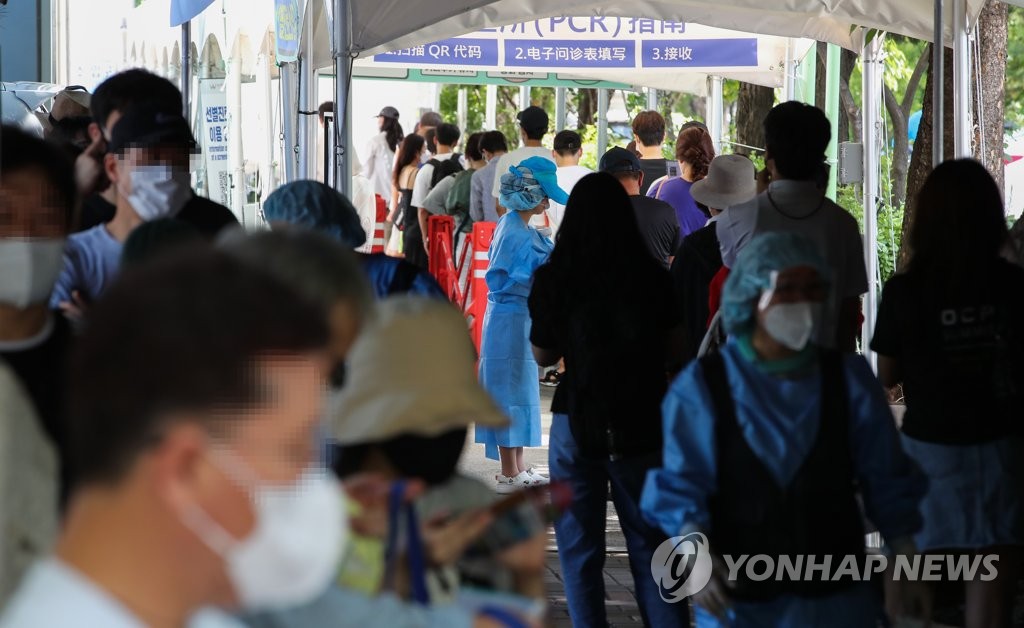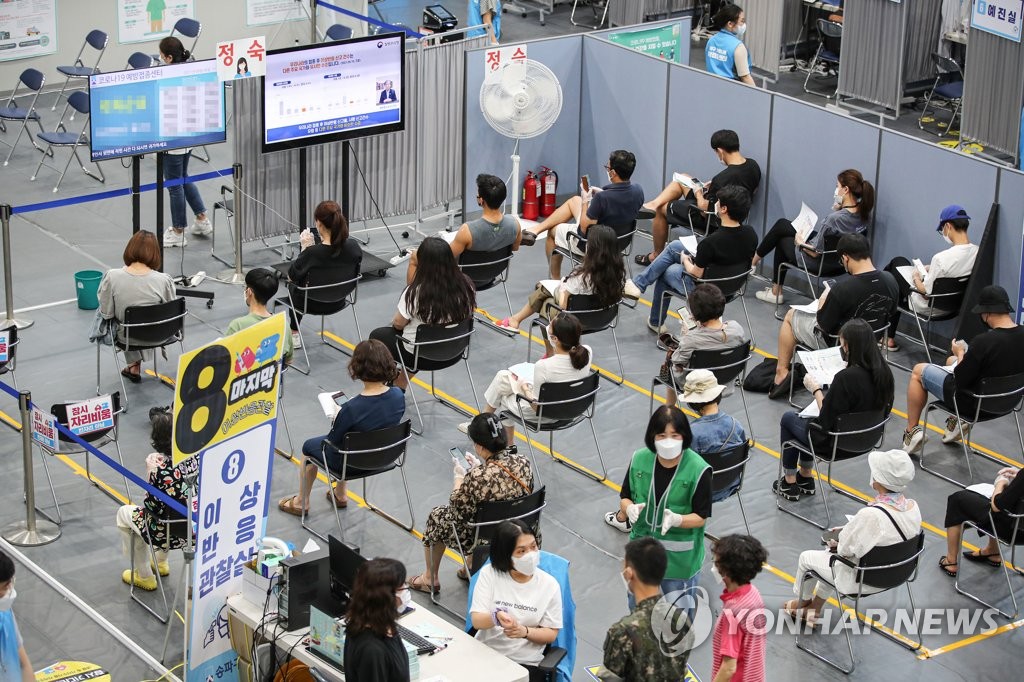- California Assembly OKs highest minimum wage in nation
- S. Korea unveils first graphic cigarette warnings
- US joins with South Korea, Japan in bid to deter North Korea
- LPGA golfer Chun In-gee finally back in action
- S. Korea won’t be top seed in final World Cup qualification round
- US men’s soccer misses 2nd straight Olympics
- US back on track in qualifying with 4-0 win over Guatemala
- High-intensity workout injuries spawn cottage industry
- CDC expands range of Zika mosquitoes into parts of Northeast
- Who knew? ‘The Walking Dead’ is helping families connect
New cases over 1,700 for 3rd day; virus curbs extended for 2 weeks
South Korea’s daily new coronavirus cases remained in the 1,700s for the third straight day Friday amid few signs of a slowdown, triggering the extension of the toughest level of virus restrictions for two additional weeks.
The country added 1,704 COVID-19 cases, including 1,640 local infections, raising the total caseload to 207,406, according to the Korea Disease Control and Prevention Agency (KDCA).
The latest caseload is slightly down from 1,725 cases reported Wednesday and 1,776 cases Thursday.
There were four additional deaths from COVID-19, raising the death toll to 2,113. The fatality rate came to 1.02 percent.


People wait in line to get tested for COVID-19 at a screening center in eastern Seoul on Aug. 6, 2021. (Yonhap)
While the current social distancing measures were set to expire Sunday, authorities decided to maintain them until Aug. 22 as the current wave of the pandemic has yet to come under control.
The daily caseload has remained above 1,000 since July 7, reaching as high as 1,895, due to outbreaks centered in the greater Seoul area.
Cases outside of the capital area have also been growing recently amid increased activities in the summer vacation season and the spread of the highly transmissible delta variant.
The greater Seoul area, home to around half of the country’s 51.3 million population, currently enforces the toughest Level 4 distancing measures, while other areas are under Level 3.
The toughest restrictions ban gatherings of more than two people after 6 p.m. and place a 10 p.m. curfew on restaurants and cafes, and a ban on nightclubs and other entertainment venues.
Under Level 3, cafes and restaurants can accept customers until 10 p.m., and only takeout and delivery services are available after that time. Private gatherings of five or more people are banned.
Health authorities said they revamped details of the social distancing rules, such as removing exceptions for gatherings of direct family members, allowing only up to four people to meet under Level 3, to stem the spread of the virus.
They added that the country will likely be able to ease the distancing measures in the capital area to Level 3 if average daily infections in the region drop to the 800s.
Since the country kicked off its vaccination program in late February, a total of 20.53 million people, or 40 percent of the country’s population, have received their first shots of COVID-19 vaccines.
Around 15 percent, or 7.53 million people, have been fully vaccinated, according to the KDCA data.
The country aims to administer a single vaccination shot to 36 million people, or 70 percent of its population, by September with hopes of reaching herd immunity in November.
Around 18 million people aged 18 to 49 are scheduled to receive their first shots starting later this month.
South Korea has so far secured a total of 193 million doses of vaccines this year from Pfizer, Moderna, AstraZeneca, Janssen and Novavax, although the Novavax vaccine has yet to be approved.
Health authorities said the country’s vaccination scheme is expected to roll out smoothly this year even without the 40 million doses of Novava vaccine the country have secured from Novavax, citing ample supplies.
Of the 1,640 domestic cases, infections from non-capital areas reached 628, or 38.3 percent of the total, after rising to the 30 percent mark in mid-July.
Busan, the country’s second-largest city, and the surrounding South Gyeongsang Province reported 105 and 98 cases, respectively.
In the capital area, Seoul reported 460 new cases, the surrounding Gyeonggi Province added 451, while the western port city of Incheon confirmed 101 cases.
New cases from overseas arrivals, which include South Korean nationals, reached 64, bringing the total to 12,254.
The total number of people released from quarantine after making full recoveries was 182,052, up 1,333 from a day earlier.
The number of patients in critical condition came to 376, up seven from the previous day.











